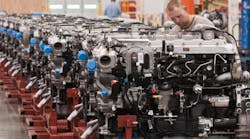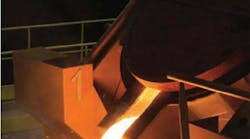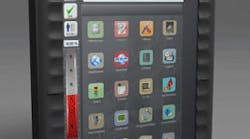Citation Corp. has filed for bankruptcy protection, citing the impact of rising scrap steel costs, and the inability to pass those costs on to customers as surcharges. The company stated that the reorganization process will allow it to address the problem and return to profitability.The company listed debts of $300 million in its filing with the U.S. Bankruptcy Court in Birmingham, AL.
Ed Buker, Citation president and CEO, said: "Chapter 11 will allow us to work with our customers and creditors to solve some of the extreme cash flow problems we've suffered due to a sluggish economy, reduced orders and unprecedented increased costs of steel and other materials.”
Among the other advantages of the court-administered reorganization process is that it allows the bankrupt companies to overturn existing purchase and supply contracts that will impede future successful operation of the new company that emerges from bankruptcy.
Citation was a public company for many years, but it was privatized by an investment firm in 2000.
Citation operates 17 U.S. plants that cast, forge, and machine compoents for various markets, including automotive and truck manufacturing, construction, aerospace, agricultural equipment, and commercial applications. About half of its finished products are ferrous castings or forgings, for which scrap steel is the essential raw material.
"Currently, all our facilities are in operation,” the Association Press quoted Buker. “A lot of times when companies are in financial trouble, they are operating poorly. We're just unable to offset the price of scrap steel."
The rising cost and/or scarcity of raw materials, particularly steel scrap, has been a growing problem for manufacturers since late 2003. In a recent 3Q 2004 earnings projection Intermet Corp., another large-volume producer of automotive castings, cited rising scrap steel costs in a warning that it expects to post quarterly loss of $19 million to $24 million. Intermet said its scrap steel costs have risen “from an average of approximately $160 per ton at the beginning of 2003, and approximately $210 per ton at the end of 2003, to approximately $395 per ton at the end of August 2004.” The AP report attributes to Buker a report of steel scrap prices as high as $420/ton.
A number of manufacturers from various industries formed the Emergency Steel Scrap Coalition to lobby the federal government to address the issue. One of their principal proposals is a ban on scrap exports, inasmuch as significant tonnages of steel scrap are sold to manufacturers overseas – especially in China.
Some steelmakers have been successful in implementing surcharges to offset materials costs, but most manufacturers have been unable to maintain a coherent policy due to competition, varying scrap supplies, and fixed delivery costs with their customers.



